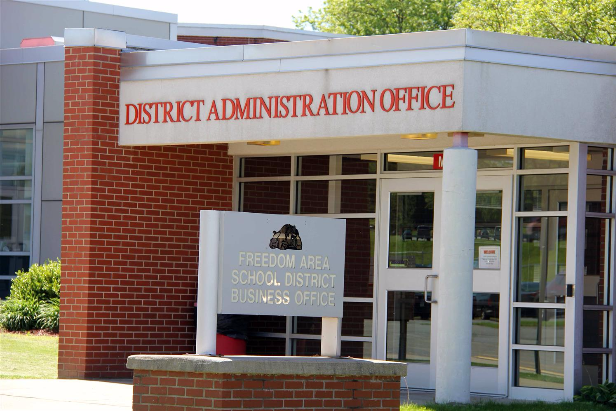Reacting to reactions
How the school would handle a non-violent crisis
The peace surrounding our campus could be shattered very easily. The next minute could be the worst minute of your life, you never know.
Students across the nation are getting reprimanded for putting offensive content on the internet that causes a lot of alarm and backlash. Everyone sees the flashy news headlines, but what happens afterwards? Oftentimes, the aftermath is not as eye-catching. What happens after a picture of students making a Nazi salute at prom goes viral? In that specific example, the school district pledged to hold community meetings, according to the New York Times, to “address the actions of the students.”
Another problem that arises in a situation like this is determining what constitutes as an incident where the school gets involved and is responsible for the actions of their students. Is it on school property? Is it during school hours? Are they at a school-sponsored event?
Freedom is required to follow a set of rules and guidelines that can all be found in the student handbook, strictly listed. Take the school’s policy about fighting, for example. Everything that could be considered a fight is specifically listed, followed by the punishments for fighting.
But what happens when the offense is not listed in the handbook? More specifically, when the offense is not as easy to define? For example, what about a bomb threat posted online? It didn’t happen in school. The school wasn’t responsible for the threat. Still, the school has to get involved. A bomb threat is a serious danger for staff and students.
In many ways, it can be difficult to put rules down in a situation where the offense is not a present threat.
“Outwardly, we would have to release a statement saying how we don’t condone the actions of the students, these actions don’t represent us as a district and as a community,” principal William Deal said when questioned about the school’s reaction to an event.
However, the school’s action would not stop there.
“We would start to ask questions. How did it happen? Did it happen in school? We would try and find out the facts surrounding the incident,” Deal said.
Making sure that students know about the harm they inflicted is also on the administration’s agenda.
“We would also want to know if the students knew that their actions are wrong. If they don’t, we would educate them about it,” assistant principal Steven Mott said.



